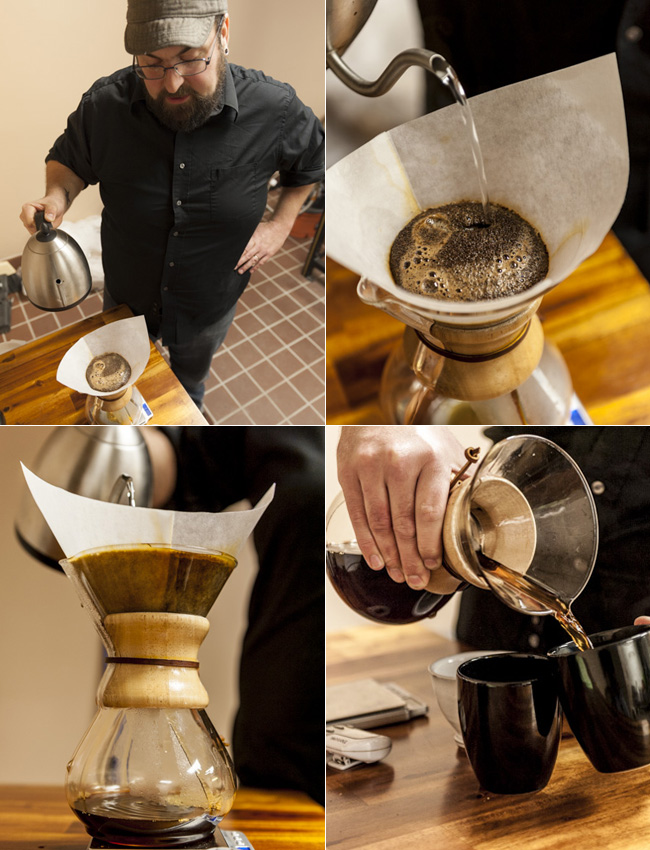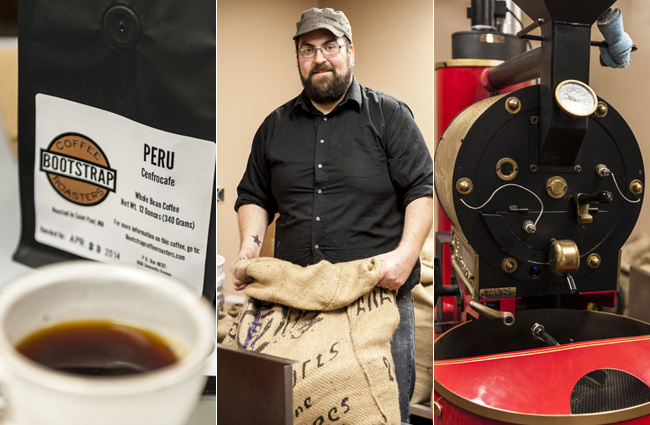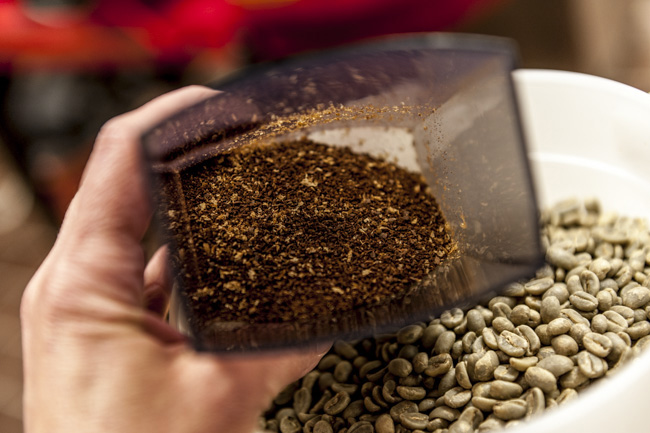
We paused the interview as Micah Svejda began his brewing ritual. Watching his meticulous, 10-step process was as meditative and illuminating as any ceremony could be.
Svejda’s Chemex Brewing Directions
1. Insert and pre-wet Chemex cone filter with hot water (about 200° F, just below boiling)
2. Drain Chemex of filtering water and place ground coffee into filter
3. Shake Chemex for even distribution of grounds
4. Slowly add hot water (just enough to allow coffee to “bloom”) and begin timer
5. Give coffee 30-45 seconds to “bloom”
6. Re-saturate the grounds, pouring water in a slow, even manner until the coffee rises in the filter
7. Continue pouring down the center until reaching the correct mass of water to coffee (a 15:1 ratio for Svejda’s perfect cup)
8. Wait while filter drains (about four to five minutes)
9. Remove filter, whirl Chemex
10. Pour, enjoy, ruminate
Yes, Svejda’s coffee was well worth the wait: silky smooth, but bracing; flavorful without needing crutches (or creams).

Of course, great coffee begins with sourcing and roasting quality beans. And Svejda’s new business, Bootstrap Coffee Roasters, aims to provide its clients with the raw (or rather roasted) materials to make kick-ass coffee. “What I’m aiming to do is really simple — it’s not crazy or innovative — I just want to be a really good wholesale roasting company,” Svejda explained over — what else? — coffee in his St. Paul roastery. “I just want to buy really good coffees, roast them well, and provide really good customer support.”
This humble ambition developed over the last 11 years, as Svejda honed his coffee-making and roasting skills. Like many Minnesota baristas, he began his coffee career at Caribou. But he didn’t fall in love with the world of specialty coffee until several years later when he moved to St. Louis, Missouri, to pursue a master’s degree in philosophy. To supplement his earnings as a teaching assistant, Svejda worked the bar at Kaldi’s Coffee. And since he clearly didn’t have enough on his plate, he spent 10 to 30 hours per week training with Kaldi’s brewmasters for barista competitions. While learning to pull a perfect shot, Svejda realized coffee was his passion and decided not to pursue his doctorate in philosophy. Instead, he would learn the rest of the coffee business and eventually start his own company. After stints as roaster and barista at Black Sheep Coffee Cafe in South St. Paul and manager at Quixotic Coffee in Highland Park, he struck out on his own with Bootstrap.
Svejda’s workspace and long hours testify to his commitment. He spends roughly 10 hours a day in a windowless, 700-square-foot (including the storage closet) room on the second floor of a warehouse building, working his solitary roaster. This is lonely, painstaking, almost monastic work. In fact, Svejda named the company to capture the extensive labor that goes into his beans: “The image of the bootstrap evokes images of hard work. I want to convey the idea that great coffee is not had accidentally; it is the result of a lot of hard work at every level of the supply chain (starting with the producer). Bootstrap wants to participate in and do honor to all of that hard work.”
Bootstrap joins an increasingly competitive field of top-shelf local coffee roasters, which includes the likes of Bull Run, Dogwood, Kickapoo, Peace, and Round Table. Why should connoisseurs choose Bootstrap over, or alongside, these other options? Not missing a beat, Svejda answered, “Because it’s freshly roasted, roasted in town. It is roasted with care. The coffee is purchased with care. And I’m a nice guy.”

Bootstrap’s three coffees (Rwanda, Peru, and a Rwanda-Peru Espresso Blend) are now available for purchase at Blue Ox Coffee and will soon be available on Bootstrap’s website. Svejda will also sell whole beans and brewed coffee at the Richfield Farmers Market on Saturdays, where you can pick up a bag of beans just a few days out of the hopper. It may not be farm-to-Chemex coffee, but it’s awfully close.
